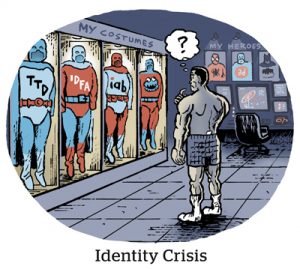 This is part of a series on companies advancing programmatic buying in Russia. Read our recent Q&As with Yandex, ADFOX, AiData, HubRus, Between Digital and RuTarget.
This is part of a series on companies advancing programmatic buying in Russia. Read our recent Q&As with Yandex, ADFOX, AiData, HubRus, Between Digital and RuTarget.
For Segmento co-founder and CEO Roman Nester, imitation is truly the highest form of flattery. He goes so far as to describe his company as a Rocket Fuel “clone.”
“Not many people would say that they are someone’s clone,” he said. “We think they are a good player and are doing [what they do] successfully.”
The company provides a programmatic media-buying platform, using a demand-side platform (DSP) from RuTarget.
The first of the 100 programmatic campaigns Segmento has run in Russia occurred in 2012. Since then, the company has grown to 20 employees with offices in Moscow and St. Petersburg, and is working to expand beyond the country.
“We have created a dedicated team of data scientists, account managers and ad ops for every global task to solve,” Nester said. “Our team comes from high-frequency trading background and from leading advertising players. Some of our guys were working for Yandex and Google. We have a strong team for technology, with marketing and advertising specialists.”
He told AdExchanger he expects its revenue numbers to double by the end of the year, and described the challenge of data in Russia and how mobile and video programmatic are doing in the country.
AdExchanger: What exactly does Segmento do for agencies and advertisers?
ROMAN NESTER: We help them to use data-driven marketing for their business. We offer them a full-service solution. We are not providing them with self-service, which is often very hard to use. Our goal is not to give [clients] powerful but complicated tools, but to solve their needs to meet their goals.
We have different types of clients, such as Hyundai, Microsoft, Tikkurila, eBay for more upper- and mid-funnel, and ecommerce clients like OneTwoTrip in travel, Wikimart in online retail and Butik.ru in fashion.
Who are your competitors?
Our real competitors are Rocket Fuel and Criteo. They are two significant players with their own technology. The Russian programmatic space is filled with reselling players. They are using global technologies but they don’t have dedicated local expertise.
How do you differentiate?
We distinguish ourselves as the only independent local, full-funnel solution on the Russian market. We worked for two years for performance-based clients, as well as for agencies and brands. They are very different types of clients: The needs of performance-based clients are concentrated on the lower side of funnel, and the needs of agencies and brands are often in the upper funnel. We successfully solve tasks for them on upper-, mid- and lower-funnel levels. If you are talking about technology, you shouldn’t ask about how much data you have. You should ask how do you work with this data and what are your results in every stage of the funnel. This is, in our opinion, a filter for players for this market.
Unfortunately, we don’t see any local players that have successfully solved that problem and play well on every stage of the funnel. If you control the technology, you can do well every part, for branding as well as for performance.
What is the programmatic space like in Russia right now? Is it growing significantly?
Yes, indeed. This year, 2014, is a very hot year. In 2013, the programmatic market increased up to 5% [of display advertising], but the biggest advertisers like P&G and MasterCard are going programmatic, so the Russian programmatic market will be accelerated.
At this moment, many brand managers are aware of programmatic but they don’t want to run the risk, so when the big players are going into the space, they will play more in this space and ask for more. Now, ecommerce is on the front lines and they are adopting new strategies for programmatic and brands and audience extension and so on. The market is really growing and I see the result of education and marketing activities of local and international players from the years before.
Is lack of data a major challenge to the growth of programmatic in Russia?
We see no data shortage; we see a lack of efficient use of the data.
We have a lot of data sources here in Russia. But we don’t see many businesses selling the data. International players are working to create data partnerships. We see that data itself is not a solution. We see the lack of really powerful technologies that could use this data well for agency or advertiser tasks. Advertisers or agencies are looking for a result and a solution, but not for just data.
Has either video or mobile programmatic started to take off in Russia?
Yes, indeed. There was a lot of talk of video and mobile in previous years, but this year, we see the heating up of this market. We see mainly mobile DSPs. At Segmento, we are offering video and mobile solutions for our advertisers. We see the demand. The problem, like I said before, not lack of offering but lack of efficiency. In the forthcoming year, advertisers would look for the efficiency of using this and for brand safety.
Going back to Segmento, who are your funders and how many rounds have you done?
We’ve had two rounds of investing. This is a private equity so we are now going to do the third. It will be a huge announcement about that soon. But it’s too early to talk about.
What are your goals for the company over the next year to 18 months?
Our goal is more expansion to the Western and Asian markets. This year, we started collaborating with an Asian partner. As our partners are expanding, they are already providing technology and infrastructure in other countries. So it’s easy for us, as Segmento, to come there with the solution, not just the technology. This year, we plan to roll out some unique products based on offline data targeting, such as bank transactions, in all channels. I think it will be a real step forward for programmatic here in Russia.













